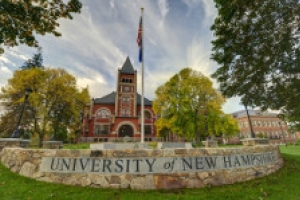Should UNH require a course on cultural competency?

In the weeks leading up to graduation this year, there were several racial incidents at the University of New Hampshire in Durham. There was graffiti with swastikas and racial slurs. A post from a student in what appeared to be blackface went viral. Students of color reported harassment.
In response, a group of students issued a set of eight demands to the UNH administration, covering everything from increasing the retention rate for students of color to increasing the number of street lights on campus. The third demand reads:
"We demand you add a 4-credit social justice course requirement, that must be intersectional in nature, to the discovery program. Any instructor for this course must be approved by the director of the Office of Community Equity & Diversity, director of the Office of Multicultural Student Affairs, as well as the DSC student council at the time."
Click here to read all of the demands.
Other campuses require cultural competency courses
Colleges across the United States have added course requirements related to social justice and diversity, often in response to racist incidents.
For example, the University of Wisconsin developed a program for freshmen "aimed at increasing knowledge about cultural differences and promoting community among incoming students" after several racially-charged conflicts on campus.
Those courses don't just address racism, however; they can address all forms of discrimination and privilege. For example, some colleges have training programs related to understanding the challenges faced by veterans.
Supporters argue cultural competency courses address discrimination based on ignorance, rather than malice. They also encourage students to speak openly about issues related to diversity and discrimination.
Are cultural competency courses a waste of time?
Some students believe the courses are a waste of time, however. Others argue they are paying for an education in specific fields and shouldn't have to pay for coursework unrelated to their majors.
Still others argue that a single course will not make a meaningful difference in the climate on campus unless UNH increases the number of students, staff, professors, and administrators who are people of color. Students gave administrators a similar list of demands in 1998, and most of those demands were never met.
How do you think UNH should address racism on campus? Share your thoughts in the comments below.











Comments
Login or register to post comments